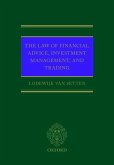Begins with the essential questions: - whether brokerage and dealing in securities is regulated in a jurisdiction - what aspects of the activity could bring it in scope for authorisation; and - how it is determined which regulator has legal competence to supervise the business in scope. The recent liberalisation of national authorisation regimes across Europe in the wake of MiFID II and Brexit, which has resulted in tensions with recent attempts by the EU to harmonise centrally the single market authorisation regime, is fully addressed. It reviews the details of the activities of sales, sales trading, trading and execution, what they each constitute (with reference to established communication and order management systems), the potential conflicts of interest that they bring about for a firm and how such conflicts can be managed. Each of these activities are mapped against specific regulatory obligations, such as best execution, pre- and post-trade transparency, inducements, dealing commissions rules, the short selling regime and shareholder disclosures, depicting the obligations schematically to assist the practitioner. Also covers: - dealing commission unbundling, which has reformed the way the provision and consumption of independent research and corporate access are related to execution services, - the question of multilateral trading, in other words the point at which the activity of a broker becomes exchange-like and needs to be authorised as such, - principal trading and the ability of firms to advance risk to their clients in the wake of the Volcker rule in the United States and similar legislation in Germany and elsewhere, - the rise of Systematic Internalisers and the constraints imposed on them, such as the pre-trade transparency requirements and the tick size regime, and - electronic trading, algorithmic trading, direct electronic access and high frequency trading, as well as the risk control framework that is relevant to all these activities.








